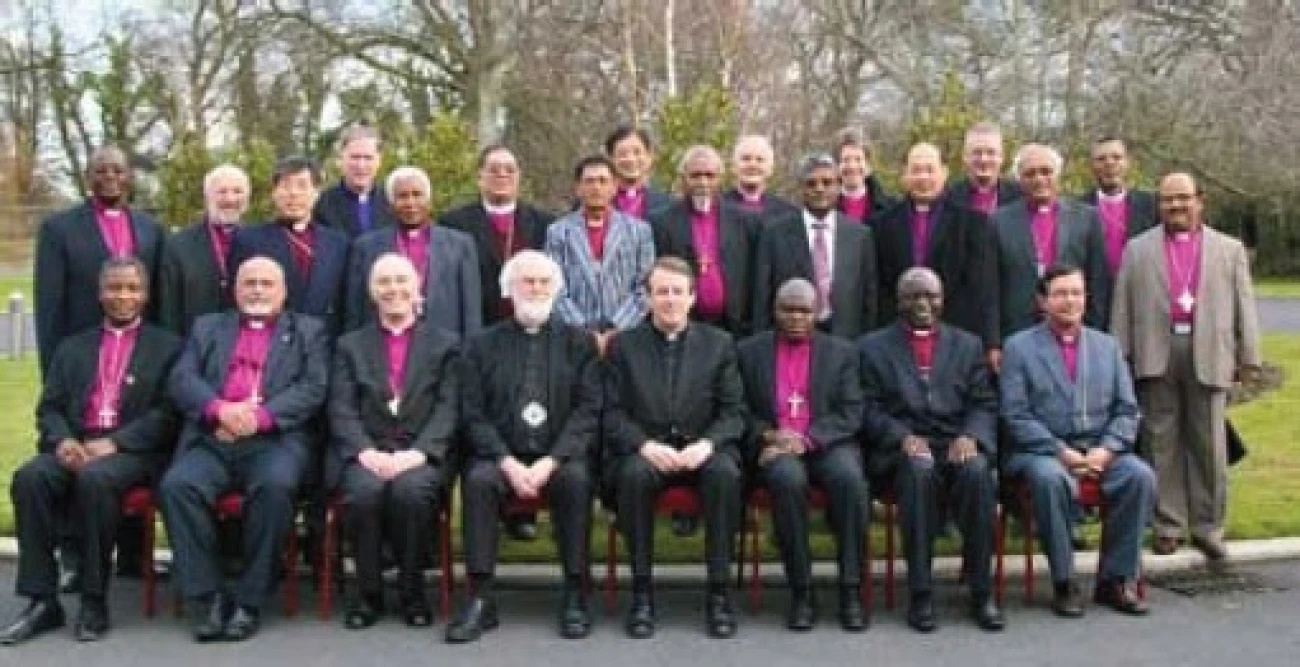Renewed clarity on Primates' Meeting meets Archbishop of Canterbury’s "chief hope"

The Archbishop of Canterbury Dr. Rowan Williams said that the outcomes of the Primates' Meeting in Ireland had met his "chief hopes" for the week.
Speaking at a press conference Dr Williams explained that when inviting the Primates to the meeting he had indicated what things might be considered there. These included decisions about an effective Primates’ Standing Committee, reflections on primacy itself, and expectations of the Primates’ Meeting.
“My chief hope was to emerge with greater clarity and agreement about what we expect of the Primates corporately and how best we can realise our expectations,” he said.
“In the light of that, I’m very glad to say that we have now a document about how we understand the work and calling and responsibility of the Primates’ meeting; the result of a number of days of very intensive discussion of our theologies of the church and of ministry. We have also redefined the task of the Standing Committee of the Primates' Meeting.”
Dr. Williams added, “We have fulfilled the tasks as expressed in those letters, of clarifying what we think about the meeting and helping to set up some structures that will serve it more effectively.”
He said he had also been eager to honour the issue of gender-based violence flagged up by African bishops at their meeting in Uganda last year. As a result of this, and of the moving presentations on the issue of violence against women and girls, the meeting had drawn up a substantial statement outlining the responsibilities of the Church in combating gender-based violence throughout the world.
Acknowledging the “significant number of absentees” at the meeting he said that the fact remained that two thirds of the body of Primates was present and three quarters expressed their willingness to attend but were unable to do so. “That means that two thirds of the Communion at least wish to meet and wish to continue the conversations they have begun.”
He said, however, that the absences of fellow Primates were felt and noticed every day, and that the documents agreed by the Primates emphasised building relationships across the whole body of Primates. He added he had had, and would be having meetings with those Primates who had not attended.
“Not attending physically does not mean you are not participating in the life of the Communion," he said. "I personally believe whether they are here they or not in Dublin, their hearts and aspirations are to see that the Anglican Communion develops positively and works together for the furtherance of the Kingdom of God."
After the six-day meeting, the Primates also agreed statements and letters on a range of issues including climate change, the murder of Ugandan David Kato, Haiti, the persecution of Anglicans in Zimbabwe and letters of support for the Primate of The Episcopal Church of the Sudan Archbishop Daniel Deng and the Primate of The Episcopal Church in Jerusalem & The Middle East Archbishop Mouneer Anis.
Podcast of the Press Conference from the Primates Meeting 2011
The panel comprised the Archbishop of Canterbury Dr Rowan Williams, The Most Revd Bernard Ntahoturi, Archbishop of the Province of Burundi & Bishop of Matana, The Most Revd Dr John Walder Dunlop Holder, Archbishop, Church in the Province of the West Indies & Bishop of Barbados and The Most Revd David Robert Chillingworth, Primus of the Scottish Episcopal Church & Bishop of St Andrews, Dunkeld & Dunblane. They were welcomed by The Most Revd Alan Edwin Thomas Harper, Primate of All Ireland & Archbishop of Armagh
Dr Rowan Williams said the outcomes of the Primates Meeting had met his "Chief hopes" for the week. He explained that among other letters and statements agreed by the Primates there were two outlining the scope and purpose of the Primates Meeting and its Standing Committee. His address was followed by a question and answer session with members of the media.
Download the podcast here.